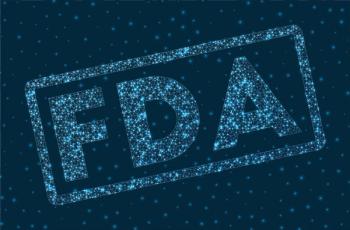
Mini Quiz: Treatment for PTSD
Which medications have consistently replicated randomized placebo-controlled trial evidence of efficacy in treating symptoms that are unresponsive to sertraline or paroxetine? Take the quiz and learn more.
For the answer, see the next page >
The correct answer is E. None of the above
Discussion
Only 2 medications have FDA indications for PTSD: paroxetine and sertraline. Some treatment guidelines recommend these or other antidepressants, including fluoxetine and venlafaxine, as equivalently first choice with focused CBT.1 Others regard focused CBT as having better evidence and suggest antidepressants only when therapy has failed or is not available, or in cases of severe depression.1-5 This reflects a number of negative randomized clinical trials (RCTs) with SSRIs, and small-to-moderate effect sizes relative to trauma-focused cognitive-behavioral therapy. It is important to note that many patients remain symptomatic and functionally impaired despite standard treatments and require alternative interventions.
There are medications with expert recommendations against their use (benzodiazepines), with uniformly negative RCTs (divalproex, bupropion, guanfacine, tiagabine), or with a mixture of both positive and negative evidence (fluoxetine, mirtaza¬pine, risperidone and olanzapine augmentation of antidepressants, topiramate). Furthermore, some commonly used pharmacologic agents have not been subject to RCTs in PTSD (citalopram, escitalopram, gabapentin, clonidine, lithium), nor have many newer agents such as levomilnacipran, milnacipran, vilazodone, vortioxetine, lurasidone, iloperidone, cariprazine, and brexpiprazole. Given the challenges in helping people with treatment-resistant PTSD, it was not surprising to find an impressive variety of alternative pharmacologic agents that have shown benefit in at least some treatment-resistant patients
For more on this topic, see
References
1. Bajor LA, Ticlea AN, Osser DN. The psychopharmacology algorithm project at the Harvard South Shore Program: an update on posttraumatic stress disorder. Harv Rev Psychiatry. 2011;19:240-258.
2. Jonas DE, Cusack K, Forneris CA, et al. Psychological and Pharmacological Treatments for Adults With Posttraumatic Stress Disorder (PTSD). Comparative Effectiveness Review No. 92. https://www.ncbi.nlm.nih.gov/books/NBK137702/. Accessed September 29, 2017.
3. Steenkamp MM, Litz BT, Hogue CW, Marmar CR. Psychotherapy for military-related PTSD: a review of randomized clinical trials. JAMA. 2015;314:489-500.
4. Gehrman P, Harb G, Ross R. PTSD and sleep. PTSD Res Quart. 2016;27:1-10
5. Toll WA, Barbui C, Ommeren M. Management of acute stress, PTSD, and bereavement: WHO recommendations. JAMA. 2013;310:477-478.
Newsletter
Receive trusted psychiatric news, expert analysis, and clinical insights — subscribe today to support your practice and your patients.







